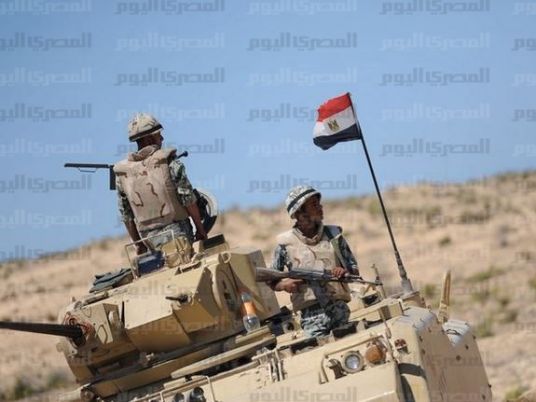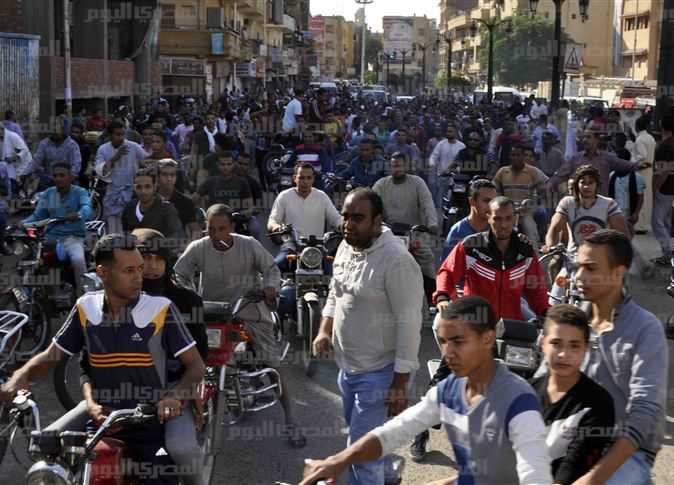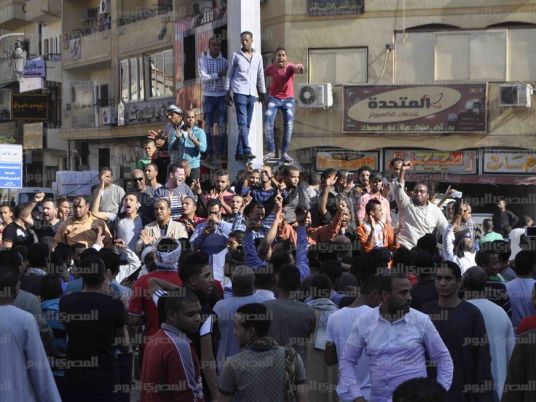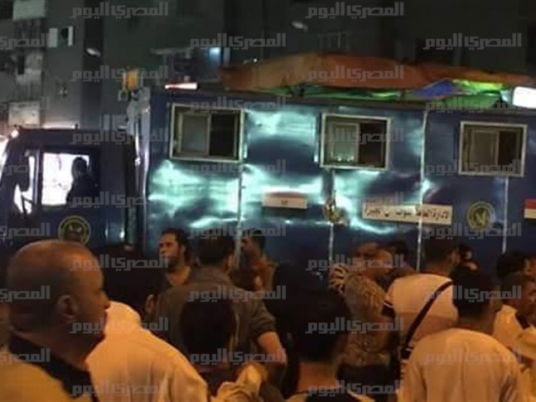
The Egyptian military is torturing civilians and prisoners are disappearing in secret military prisons without judicial oversight in one of the toughest crackdowns on detainee rights, according to evidence collected by Amnesty International and Human Rights Watch.
The new exposé is based on testimonies by detainees who spent time in the secret prison and evidence was collected by local and international human rights organizations.
The testimonies shed light on a new chapter of the military’s wide-scale human rights abuses against civilians that peaked after General Abdel Fattah al-Sisi – now the country’s president – ousted the first democratically elected president in Egypt's modern history on 3 July 2013.
“Military prisons are only for military personnel who violate military rules or civilians who attack military institutions,” said a soldier in the Defense Ministry's media department, preferring to remain anonymous.
He categorically denied that civilians could be referred to military prisons without legal ground. The interview took place in April 2013 as part of an in-depth investigation for The Guardian on civilians who disappeared during and after the 18-day uprising that led to Mubarak’s ouster in 2011.
Yet, Egyptian human rights lawyers and activists have a list of 30 civilians who are reportedly being held in secret at Azouly prison inside Al-Galaa Military Camp in Ismailia, 130 km north-east of Cairo.
Abuses against detainees are considered to be the worst at military prisons as there is no access to lawyers, family visits or prosecution oversight like other civilian prisons. There are stories of burning oil being poured on victims, genitals being electrocuted, in addition to fierce beatings.
Some Egyptian families interviewed during the 2013 investigation confirmed that their relatives went missing after being arrested at army checkpoints and were never found since, a fact-finding committee appointed by then-president Morsy in 2013 concluded.
In a related report by the same paper in June 22, 2014, three victims said that officers from the military intelligence led the interrogations and torture. The intelligence division was headed by Sisi until 2012.
Former detainees who survived the horrible experience told Amnesty International that around 400 detainees are being held in the three-storey prison block with no charges or access to lawyers or families.
Inmates there, mostly held for either their anti-military or anti-coup stances, are routinely electrocuted, beaten and hanged naked by for hours until they give satisfactory confessions to interrogators.
“He (the interrogator) ordered the soldiers to make me totally naked. The electric shocks were in every place in my body, especially the most sensitive areas – my lips, behind my ears and under the shoulders,” Khaled, a former prisoner told The Guardian.
“The electrocution was over my clothes, but on the testicles,” said another victim.
Hand-written letters by several prisoners , detained as of June 30, 2013, were compiled in a book by El Nadim Center for the Management and Rehabilitation of Victims of Violence. Two letters, written by prisoners who spent time in Azouli military prison, describe the brutal use of torture in a place dubbed by human rights activists as “Egypt's darkest secret”.
The independent Egyptian NGO received an anonymous letter on March 14, 2014 from a prisoner explaining how he was tortured.
“Torture takes place by pouring boiling water, boiling oil and electrocuting victims," he wrote. "Some detainees are bound by their feet and hands throughout the day in solitary cells for months. In Azouli prison there are hundreds of detainees who have committed no crime. Several young detainees were killed under torture. There is a mute detainee with half of his body paralyzed."
“Another detainee, Ayoub, 12, was accused of bombing a tank and they killed his father in Sinai," letter also said. "Using the toilet is allowed only once before dawn and every three people have five minutes. The beating continues on the way to the toilet. Food is not enough (bread and macaroni).”
From the same prison, a letter written by a prisoner named Abdel Moneim Bahaa El-Din Gomaa read: “I was kidnapped from my home on 23 January (2014) and held at Azouli camp for 27 days during which I was tortured with electricity, beaten and flogged with an iron chain.”
“In Azouli prison there is a women’s section. You actually hear their screams during interrogation,” he added.
“These are practices associated with the darkest hours of military and Mubarak’s rule," said Hassiba Hadi-Sahraoul, Middle East and North Africa Program Deputy Director at Amnesty International. "Egypt’s military cannot run roughshod over detainees’ rights like this.”
According to estimates by WikiThawra, which is run by the Egyptian Center for Economic and Social Rights (ECESR), an estimated 41,000 people have been imprisoned or indicted since July 2013. Other counts suggest 16,000.
During the period since the 3 July 2013, ousting of Morsy, Egyptian security forces have used excessive force on numerous occasions, leading to the worst incident of mass killings in Egypt’s recent history, Human rights Watch said in its report published on June 9, 2014.
Judicial authorities have handed down unprecedented large-scale death sentences and security forces have carried out mass arrests and torture that harken back to the darkest days of former President Mubark’s rule.
Yet, despite the heavy-handed crackdown on both secular and Islamist opposition and freedom of speech, Sisi's government has failed, at least until now, to dismantle the network of Sinai-based radicals, topped by Ansar Bayt al-Maqdis. The group remains a threat to the country’s stability and, in turn, the economy as it stepped up terrorist operations since Morsy's ouster.




